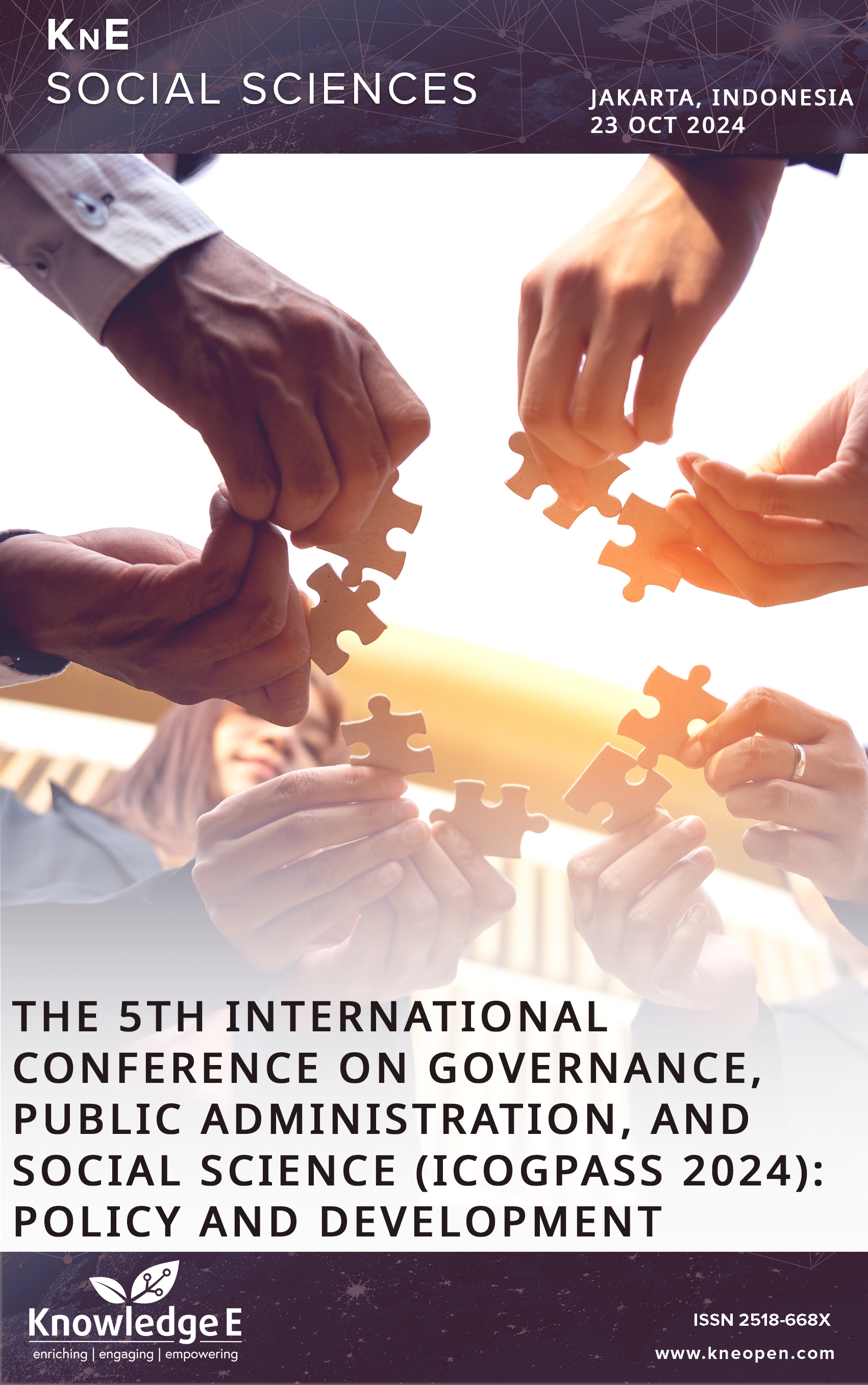The Gross Violations of Human Rights: Solving a Case in Banda Naira Island Middle Maluku District
DOI:
https://doi.org/10.18502/kss.v10i15.19173Keywords:
genocide, human rights, violations, regional government rolesAbstract
This study aims to analyze the pattern of resolution for serious human rights violations, specifically the 1621 genocide on Banda Naira Island, Central Maluku Regency, and to assess the role of the regional government in addressing these violations. Employing a normative legal research method complemented by empirical analysis, the research examines statutory provisions, historical records, and comparative studies of genocide cases in other countries. The findings reveal that the resolution of past gross human rights violations in Indonesia, including the Banda Naira genocide, has been hampered by limited legal action and insufficient government attention. The study underscores that both substantive and procedural aspects—guided by Law No. 26 of 2000 concerning Human Rights Courts—must be fulfilled to qualify an incident as a gross human rights violation (genocide). The procedural process involves a pro-justice investigation by the National Human Rights Commission (Komnas HAM), culminating in a plenary decision and potential referral to the Attorney General. The research highlights the importance of a reconciliation process that is community-driven and culturally rooted, involving truth-seeking, acknowledgment of victims, and reparations. The Central Maluku Regency government is urged to initiate comprehensive studies to officially document the genocide, which would facilitate further investigation and recognition by national authorities. In conclusion, resolving the Banda Naira genocide requires a collaborative approach integrating legal, governmental, and cultural mechanisms to ensure justice, truth, and reconciliation for victims and their descendants
References
[1] Manan M. two types of human rights violations, https://www.hukumonline.com/ berita/a/dua-jenis-pelanggaran-hak-asasi-manusia-lt60af046bbe964/?page=all
[2] Jalu LY. The Banda Spice Route, Between Trade, Conquest and Mixing: The Dynamics of Banda Neira Society Seen from the Socio-Historical Economy of Spices. Journal of Society and Culture. 2021;23(3):304.
[3] Nur Isma Lailiyah, et al, Caring for the Memory of the Genocide and VOC Domination in Banda in 1621 (In Socio-Economic Perspective), Historiography: Journal of Indonesian History and Education, Vol.1, No.4, pp. 513. https://doi.org/10.17977/ um081v1i42021p506-514.
[4] Jalu Lintang Yogiswara Anuraga, Deliberative Democracy in the Periphery: The Case of the Banda Neira Islands, BRIN Publishers, pp. 114. https://doi.org/10.55981/brin. 744.c584.E-ISBN:978-623-8052-92-9.
[5] Arinanto S. Human Rights in Political Transition in Indonesia. Center for Constitutional Law Studies, Faculty of Law, University of Indonesia; 2018.
[6] Dadrian VN. A Typology Of Genocide, International Review of Modern Sociology, Vol. 5, No. 2, AUTUMN, 1975, pp. 201. https://www.jstor.org/stable/41421531
[7] Satrio Saptohadi, The Existence of Human Rights Courts in Law Enforcement in East Timor After the Opinion Poll, Journal of Legal Dynamics, Vol. 13 No. May 2, 2013, pp. 346-347. DOI: http://dx.doi.org/ https://doi.org/10.20884/1.jdh.2013.13.2.216.
[8] Supriyanto BH, Regarding LE. Human Rights (HAM) According to Positive Law in Indonesia, Al-Azhar Indonesia Journal Social Institutions Series, Vol. 2, no. 3, March 2014, p. 156-157. https://jurnal.uai.ac.id/index.php/SPS/article/view/167
[9] Abdul Hakim G. Nusantara, Application of International Law in Cases of Serious Human Rights Violations in Indonesia, Indonesian Journal of International Law, International Criminal Law, Article 5, Volume 1, Number 4, August 2021, pp. 762- 763. https://doi.org/10.17304/ijil.vol1.4.566.
[10] Friedman LM. the Legal System: A Social Science Perspective, New York: Russell Sage Foundation, New York, 1975.
[11] Montesquieu, the Spirit of Laws, University of California Press, 1977.
[12] Muhammad Yusuf Putra and Irwansyah, Non-Judicial Resolution of Past Serious Human Rights Violations: Review of Judicial Sociology, Tanjungpura Law Journal, Vol. 2, Issue 1, January 2018, pp. 9-11. http://jurnal.untan.ac.id/index.php/tlj
[13] Manan B, Harijanti SD. Understanding the Constitution; Meaning and Actualization. Jakarta: Rajawali Pres; 2014.
[14] Erfandi T. Judicial Review of Resolving Serious Human Rights Violations Through Truth and Reconciliation Commissions in South Africa and Indone- sia, DHARMASISYA Journal of the Master of Law Program, Faculty of Law, University of Indonesia, Volume 1, Number 4, December 2021, pp. 2175. https://scholarhub.ui.ac.id/dharmasisya/vol1/iss4/38/
[15] Taufik ZA. Resolving Serious Human Rights Violations Cases Through Reconciliation Patterns After the 2006 Constitutional Court Decision. IUS Journal. 2017 Aug;V(2):208–9.
[16] Begem SS, et al. Legal System for Resolving Serious Human Rights Violations Through the International Criminal Court. SIGn Law Journal. 2019 Sep;1(1):5.
[17] Ni’matul H. Regional Government Law. Bandung: Nusa Media; 2009.
[18] Asshiddiqie J. Constitution and Constitutionalism. Jakarta: Secretariat General and Registrar of the Constitutional Court of the Republic of Indonesia; 2006.
[19] Manan B. Welcoming the Dawn of Regional Autonomy. Yogyakarta: Center for Legal Studies FH UII; 2001.
[20] Marzuki PM. Legal Research. 7th ed. Jakarta: Kencana; 2011.
[21] Ungor UU, Adler N. Indonesia in the Global Context of Genocide and Transitional Justice. J Genocide Res. 2017;19(4):612.
[22] Human Rights Council. Anatomy of a Genocide, Fifty-fifth session, 26 February-5 April 2024, Agenda item 7.
[23] Benjamin Madley, Patterns of frontier genocide 1803–1910: the Aboriginal Tasmani- ans, the Yuki of California, and the Herero of Namibia, Journal of Genocide Research, Vol, 6, No. (2), Juni 2024, pp. 189. https://doi.org/10.1080/1462352042000225930.
[24] Sucipto P. Resolving Past Gross Human Rights Violations through the TRC, 2015, https://setkab.go.id/penyelesaian-pelanggaran-ham-berat-masa-lalu-melalui-kkr/
Published
How to Cite
Issue
Section
License
Copyright (c) 2025 Muhammad Irham, Sherlock H. Lekipiouw

This work is licensed under a Creative Commons Attribution 4.0 International License.

